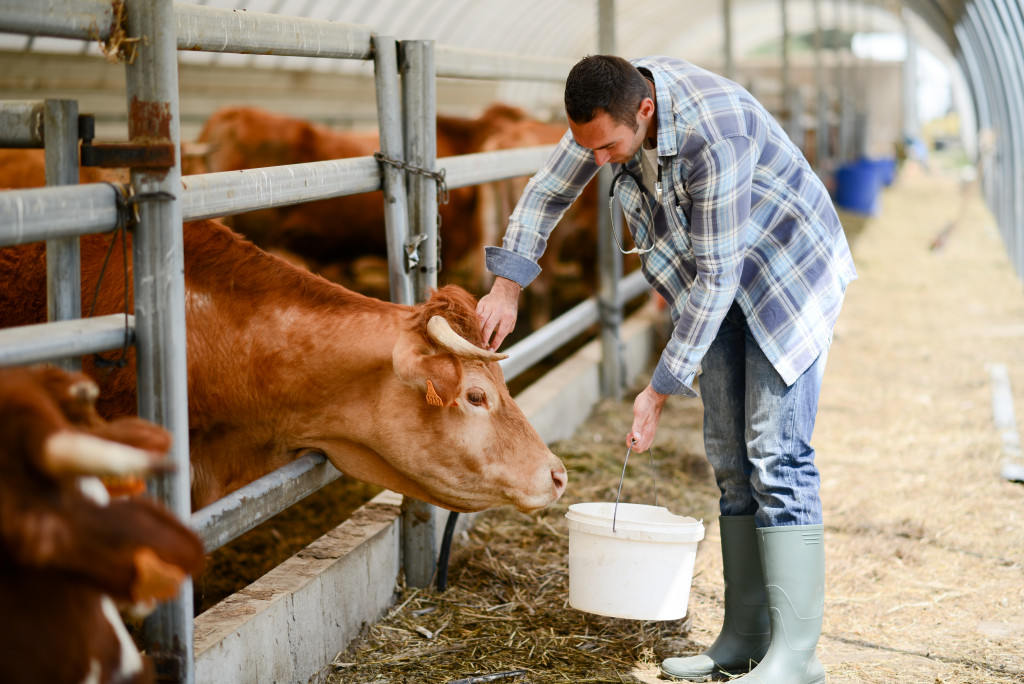To start a successful animal rescue, one must be dedicated and hard-working. There are many approaches to starting a rescue, though. Some rescues have a specific focus, while others take whatever animals they can get. Whatever your style, passion, and experience will be the most critical parts of your new venture.
Here are a few key pieces of advice to help you start and maintain a successful rescue:
1. Make sure to do your homework before you get started
Read up on whatever breeds or species pique your interest. This will allow you to provide the best care possible to those animals under your care. It is also essential for you and volunteers (if applicable) to be familiar with the general temperament and needs of the animals. If you don’t know how big it’s going to grow, for example, this can pose problems down the line as it may not fit well in its current enclosures if they are too small.
2. Be willing to say yes
More often than not, people want more of something—space, resources, time, attention, etc. But if you’re going to be a successful animal rescuer, you have to limit your intake. This is because it takes a lot of energy and commitment from everyone involved for a rescue to run smoothly. So learn to say no when people come with pets that don’t match your organization’s mission or available resources. If they need help, direct them towards another reputable organization in their community that can accommodate them.
3. Recruit the right people
It’s crucial that the exemplary volunteers are recruited not just for maintenance and care but also to ensure that animals end up at the appropriate place for adoption or rescue—whatever it may be based on each dog’s needs and situation. Look out for those who are specifically passionate about the breed or species in question since they are more likely to be invested in an animal’s long-term care.
4. Adopt a policy for euthanasia
No matter how much you love your animals, there may come a time when one has to be euthanized due to too many health problems, aggression, lack of resources or space, etc. It will happen no matter what, so have a plan when it does. Euthanasia is when an animal is put down with pain medication instead of letting them die naturally. It should only be used if necessary, though, so all factors must be considered beforehand. No one wants to think about euthanasia, but it needs to happen for a rescue to run smoothly and with integrity.
5. Make sure you have the funds in place in case of emergencies
It’s important to take care of the animals in every aspect—physically, emotionally, financially, etc. If there are ever emergencies (such as an unexpected trip to the vet), you need to ensure that you still have enough funding before getting another animal into your care. Remember that there are also incidental costs of rescues that people may not think about or budget for. Hence, it’s good to always be prepared and aware of all possibilities so that nothing comes unexpectedly out of the left field.
6. Consider animal end-of-life care

This means that if an animal gets to the end of their life, they need to be treated with respect and dignity. For example, when a dog’s body can no longer sustain itself, euthanasia would need to be considered so that it doesn’t suffer. No matter what happens, though, treat them with empathy and love because this is still hard for all parties involved, even when it’s the best decision. End-of-life care for dogs, for example, can be brought upon by several different factors. It could be from old age, illness, disease, etc.
7. Be transparent
Being upfront about all things related to your rescue will help you build trust between you and other people, whether that’s your donors/supporters or adopters or potential adopters. It helps create an understanding of how your rescue works, leading to more opportunities for everyone involved (and hopefully more adoptions as a result).
8. Be committed for the long term
Starting a successful animal rescue cannot happen within the span of just a few days or even a few months. It takes time to build up resources, connections, awareness, etc. so that everything works according to plan. And if it doesn’t work out this way, go back to the drawing board and start over again until it does! Building something sustainable isn’t easy, but if you are dedicated enough, it is an outcome worth working toward.
Starting a successful animal rescue is not to be taken lightly. It requires many sacrifices, lots of work, and plenty of dedication, but if one has the right people, policies, end-of-life care for dogs, funds in place, transparency, long-term commitment, and more on their side—the result will be worth it.



